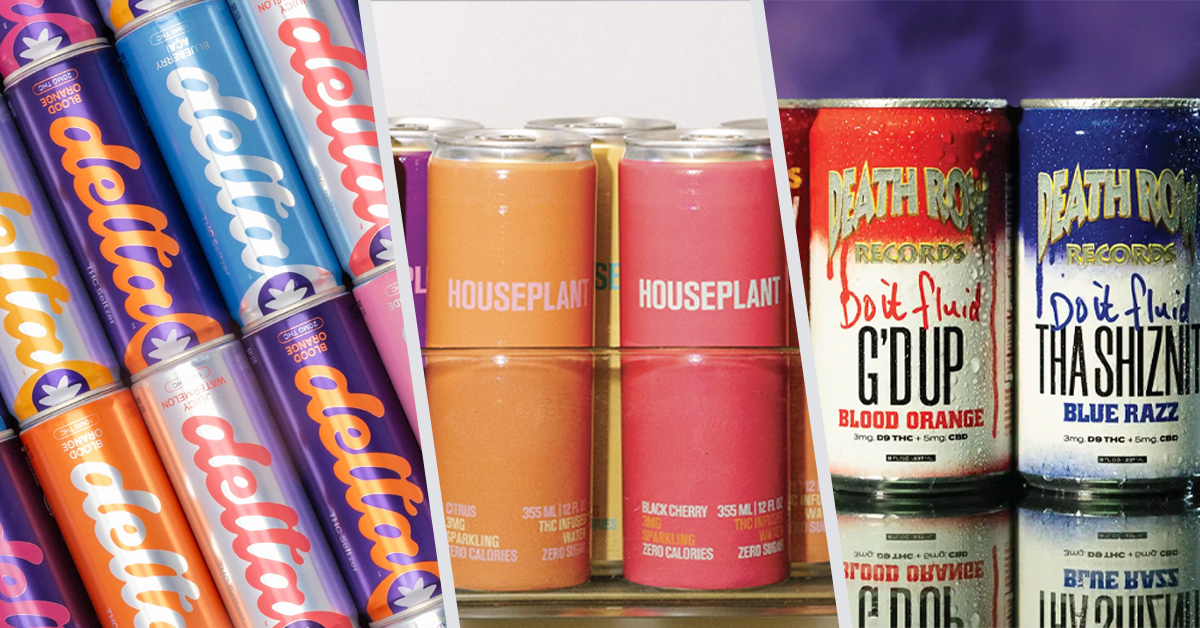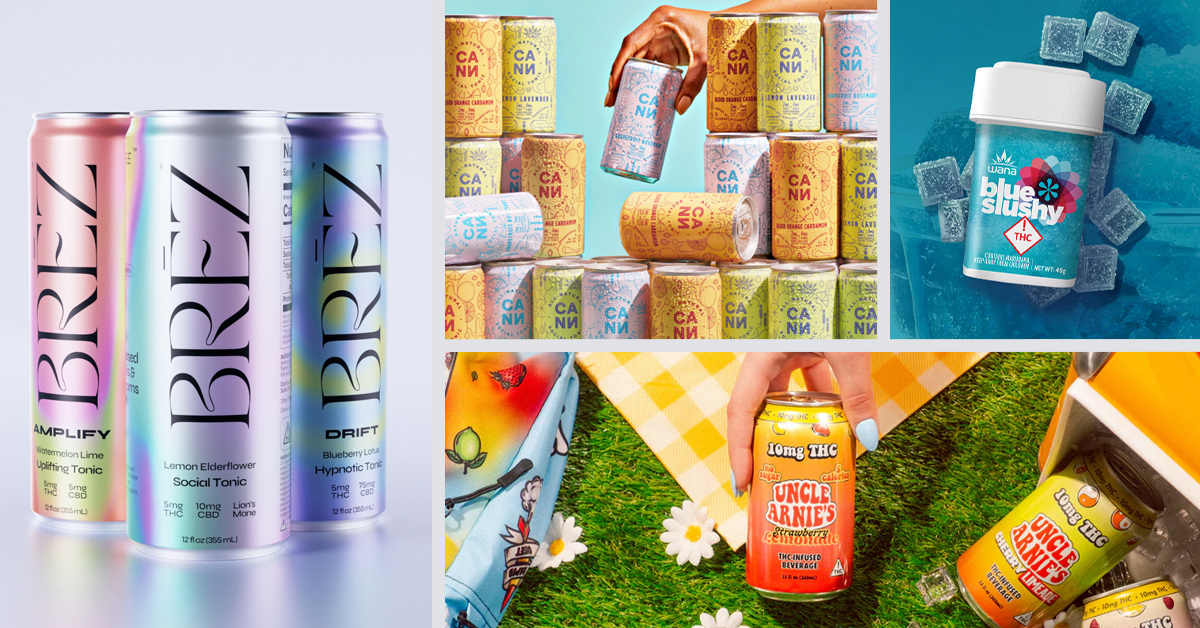Even for an industry born out of risk and uncertainty, hemp beverages are now officially in uncharted waters.
After a whirlwind few days this week, the multi-billion-dollar hemp-derived THC industry is waking up this morning to the stark reality that, barring the creation of a legal federal framework, they will be virtually extinct within a year. As part of the funding bill to reopen the government passed last night, hemp-derived products will be required to contain less than .4mg THC per container, as of November 13, 2026.
In the early aftermath, industry operators and advocates have already sprung into action.
What Happens Now?
As all journalists know, deadlines are a powerful motivating force. In this context, the 365-day ticking clock may help galvanize and unite a fractured industry in support of mutual survival.
“This is exactly when we, as an industry, need to come together and push for sensible regulations that ensure hemp products are here for the long run,” wrote Theo Terris, CEO of Uncle Arnie’s, on LinkedIn.
Adam Terry, CEO and co-founder of Cantrip, echoed that feeling, while warning “if you’re going to be a CEO in Cannabis, you better be prepared to be Chief Activism Officer as well.”
“I’ve been in commercial cannabis for 10 years and did 5 years of activism before,” he wrote. “And I think in the next 12 months we’re going to hold the biggest, most public and wide ranging conversation in American HISTORY on what cannabis policy in America should really look like.”
In a statement shared with BevNET, Jake Bullock, CEO and co-founder of pioneering beverage brand Cann, said “This isn’t a ban — it’s a one-year shot clock to finally get the rules we’ve always wanted. From the beginning, our vision has been to sell Cann alongside alcohol wherever it’s sold, and today marks the start of making that vision a reality.”
However, the factors of the equation haven’t necessarily changed. Without the burden of a time limit, Congress and the FDA have proven incapable or unwilling to take on the challenge of establishing federal regulations. As with all things in DC, the political winds are fickle; recall that earlier this year, speculation was rampant that President Trump was preparing to reschedule cannabis, a topic that has since been overtaken in priority several times over. A White House spokesperson told Marijuana Moment this week that the process remains “ongoing.”
For a period, it appeared as if changing attitudes towards cannabis legalization were one of the rare points of agreement between Democrats and Republicans; in a Gallup poll from 2024, over half (53%) of GOP voters were in support of legal marijuana. The reality of having hemp-derived THC drinks in traditionally ‘red’ states, particularly those without a regulated cannabis market, seems to have changed that in some ways, perhaps as concerns around the sale of products to minors have grown. In 2025, Republican support declined to just 40%, per Gallup.
Is ‘One Plant’ the Way?
Almost all conversations around the current market start from a similar place: Call it “cannabis,” “hemp,” or “marijuana,” they all refer to the same plant, cannabis. Rather, most of the divisions between state and federal law, and also public perception, are around which part of the plant – carved into different definitions for legal purposes – the cannabinoids are sourced.
Just to refresh, the 2018 Farm Bill established the legal threshold of .3% THC by dry weight. Under that definition, THC could be extracted legally from hemp – a term used to define stalks, leaves and other parts of the plant with low-THC content – without going over the limit. Extracting the exact same cannabinoid from “marijuana” – defined as the THC-rich flowers and buds of the plant – was restricted exclusively to products moving through regulated adult-use channels or state-run medical programs.
That inhibited beverages as a market initially, because recreational use stores don’t offer the through-put, or even have the room, to store and sell low-priced beverages. The federal hemp legislation offered a back door to an industry that allowed much faster growth. Consider the switch at Cann, which had initially focused on marijuana-derived THC in its beverages, but found massive growth outside the dispensary channel with a change in formula to federally legal hemp.
That fast growth, and mass adoption of hemp as the THC source of choice, actually created unlikely competitors – and unlikely allies. When it came to lobbying around the just-passed legislation, many beer wholesalers lined up with the hemp brands, while spirit and beer manufacturers were lined up with the same regulated cannabis businesses they once reviled.
The regulated cannabis industry has chafed against the widespread availability of hemp-derived products at retail, unburdened by the costs and compliance standards required to sell in the adult-use market; that sentiment inspired governors in canna-friendly states like California and Massachusetts to halt hemp-THC sales in their states with emergency orders.
But as hemp faces an existential threat, this may be the time when the two sides begin collaborating in earnest. Hemp beverages have proven a market for low-dose usage exists – if they want to exist outside of the much-slower-turning dispensary channel, however, something needs to change. Simply moving all non-synthetic THC exclusively to regulated channels – as California will start doing soon – doesn’t fix the overall sales volume issue (or tax, or banking, or any number of other federal roadblocks to economic viability) for any of the parties involved.
“This should be the driving force behind a renewed push for legalization and sensible regulation of cannabinoids,” wrote Douglas Fischer, general counsel for vape tech company ACTIVE. “If all THC is illegal regardless of source, there’s a real impetus for everyone in every cannabinoid market to align on a coordinated advocacy strategy. A strategy that recognizes it’s the same plant.”
The sourcing question becomes particularly critical thanks to the new .4 THC limit on hemp products. Hemp naturally contains small amounts of THC, and the low threshold could mean that cultivators may end up stuck with large amounts of unusable crops.
That’s a challenge for small operators, but potentially devastating to larger cultivators like Kentucky-based Cornbread Hemp, whose CEO, Jim Higdon, has said the .4mg limit “will make 100 percent of Cornbread Hemp products illegal, including our full spectrum CBD products, topical CBD products, and even CBD oils.”
But despite calls for unity, there are still issues to be sorted within the overall shape of the intoxicating hemp business. Though beverages have emerged as the most broadly popular and accessible format, intoxicating hemp-derived THC also includes inhalables, edibles and other formats that consumers and regulators may view as more dangerous or risky than drinks – and also offer competition for regulated marijuana businesses.
See California, which passed a law in September all outlawing synthetic cannabis products and inhalable cannabis products made with hemp-derived cannabinoids – but also forcing hemp-derived THC back into the regulated, much-slower-turning dispensary channel.
“Gas station weed” has become a byword for untested, potentially dangerous products that must be kept out of the hands of kids – a far cry from the polished beverage brands that have won over mainstream chains like Target and Circle K, perhaps, but they are all painted with the same brush under the new regulation – something McConnell himself referred to on the Senate floor.
“High-potency, synthetic products have no place in the market,” said Bullock. “The industry’s inability to solve that problem is what led us to today. We’re ready to lead this next chapter, with the good actors who care about real regulation. Regulation that gives Americans access to the lowest-potency drinks, and keeps them away from minors. Alcohol has been doing this for nearly a century, and we should leverage their rules as a model for these adult beverages, to create smart, sensible rules that let this category thrive responsibly.”
Against that backdrop, hemp beverages may seek to sway lawmakers with a legal carve-out of their own, but they’ll likely need help from a more powerful lobby – the same liquor makers who have lost share to their drinks.

